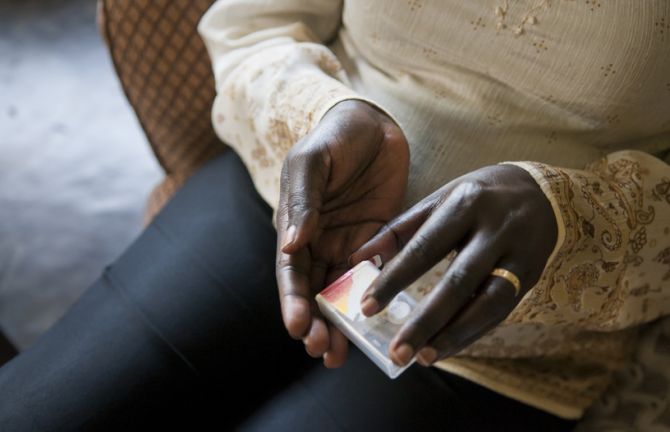

Update
High-level panel meets to find innovative solutions to expand access to medicines
11 December 2015
11 December 2015 11 December 2015The recently appointed United Nations High-Level Panel on Access to Medicines is meeting for the first time on 11 and 12 December in New York, United Sates of America, to explore innovative approaches of ensuring access to medicines for people most in need. The panel was set up as part of efforts to achieve Sustainable Development Goal 3: ensuring healthy lives and promoting the well-being of people of all ages.
The UN Secretary-General established the panel based on the findings and recommendations of the Global Commission on HIV and the Law convened by UNDP on behalf of UNAIDS. Its aim is to ensure that everyone can access quality, affordable treatment while incentivizing innovations and new health technologies. The newly established High-Level Panel will review and assess proposals and recommend solutions to policy incoherencies between the rights of inventors, international human rights law, trade rules and public health in the context of access to health technologies.
“Despite the progress that has been made in tackling a number of major global health challenges over the past three decades, so many people have been left behind,” said UNDP Administrator Helen Clark. “Disease and poor health are still big barriers to social and economic development in many countries, and our world has yet to witness truly inclusive and equitable development,” she added.
“Governments and the private sector have a responsibility to ensure that medicines are accessible to everybody,” said UNAIDS Executive Director Michel Sidibé. “The AIDS response is proof that access to affordable and effective medicines can halt and reverse an epidemic, contributing to an increase in life-expectancy and healthier communities.”
Generic competition in the pharmaceutical industry, fostered by the use of flexibilities in the application of intellectual property has helped make life-saving HIV medicines much more affordable and allowed the massive scale-up of HIV treatment programmes. For example, in 2000, the price of antiretroviral medicines was around US$ 10 000 per person per year. The price of first-line treatment has now been reduced to as low as US$ 100 per person per year in some countries, ensuring access to life-saving medicines for around 15.8 million people in 2015.
However, despite the price reductions, 21.1 million of the 36.9 million people living with HIV still don’t have access to treatment and the price of second- and third-line HIV medicines are out of reach of many people. Since HIV treatment is for life, there is a continuous need for innovation on treatment regimens and sustained price reduction in HIV-related products, including diagnostics and treatment of opportunistic diseases, co-infections (like hepatitis B and C, and TB), and co-morbidities, and more funding for research and development into a vaccine and cure for HIV.
Some 16 members make up the high-level panel, bringing with them expert knowledge of the broad range of trade, public health, human rights and legal issues associated with innovation of health technologies and access to treatment. The panel, co-chaired by Festus Mogae, former President of Botswana, and Ruth Dreifuss, former President of Switzerland, will look at the urgent need for alternative models to foster research and development for global public health threats, including diseases for which financial returns are not guaranteed. They will cover not only infectious diseases, such as HIV and hepatitis C, but also the rising burden of non-communicable diseases and the affordability of health technologies. The panel will present its report to the UN Secretary-General in June 2016.



